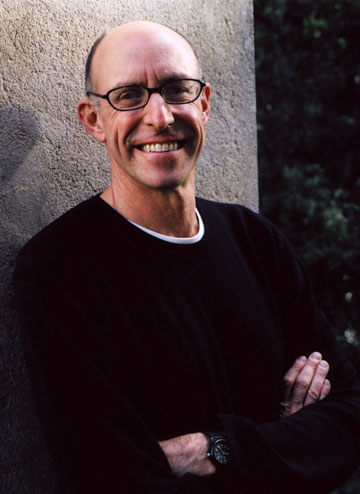
|
February 12, 2008 |
Defending Food
Best-Selling Author Michael Pollan to Speak at Brown
Writer Michael Pollan will discuss his new best seller, In Defense of Food: An Eater’s Manifesto, in a Feb. 21, 2008, lecture at 6 p.m. in the Salomon Center for Teaching, Room 101. The Committee on Science and Technology Studies is sponsoring Pollan’s talk, which is free and open to the public. | |||
|
Brown University Home |
PROVIDENCE, R.I. [Brown University] — In his latest best seller, Michael Pollan issues a simple manifesto about healthy eating: Eat food. Not too much. Mostly plants. 
Pollan will discuss this declaration in a lecture on Feb. 21, 2008, at 6 p.m. in the Salomon Center for Teaching, Room 101. The talk is sponsored by The Committee on Science and Technology Studies and is free and open to the public. Doors open at 5 p.m. and seating will be first come, first served. After the lecture, Pollan will sign copies of his new book, In Defense of Food: An Eater’s Manifesto. Topping the New York Times Bestseller List for hardcover non-fiction, In Defense of Food explores the modern food landscape and its effect on consumer health. Pollan said Americans are increasingly consuming “edible food-like substances” – energy bars, chicken nuggets, drinkable yogurt in portable tubes – that are products not of nature, but the food industry. Pollan argues that in a rush to improve health, Americans have focused too heavily on nutrition, adding vitamins, whole grains, fatty acids and other “healthful” ingredients to food. But after a generation of “nutritionism,” Pollan notes that Americans aren’t any healthier. In his talk, titled “In Defense of Food: The Omnivore’s Solution,” Pollan will argue for small portions, lots of fruits and vegetables and eating well-grown, unprocessed food – “the kind of food our grandmothers would recognize.” He writes: “As a general rule it's a whole lot easier to slap a health claim on a box of sugary cereal than on a raw potato or a carrot, with the perverse result that the most healthful foods in the supermarket sit there quietly in the produce section, silent as stroke victims, while a few aisles over in Cereal the Cocoa Puffs and Lucky Charms are screaming their newfound ‘whole-grain goodness’ to the rafters. Watch out for those health claims.” Pollan’s previous book, The Omnivore’s Dilemma: A Natural History of Four Meals (2006), was named one of the 10 best books of 2006 by the New York Times and the Washington Post. It also won the California Book Award, the Northern California Book Award, the James Beard Award for best food writing, and was a finalist for the National Book Critics Circle Award. He is also the author of The Botany of Desire: A Plant’s-Eye View of the World (2001); A Place of My Own (1997); and Second Nature (1991). A contributing writer to the New York Times Magazine, Pollan served for many years as executive editor of Harper’s Magazine and is now the Knight Professor of Science and Environmental Journalism at the University of California–Berkeley. The lecture is sponsored by the Committee on Science and Technology, an interdisciplinary program that brings together Brown anthropologists, philosophers, historians, art historians, literary theorists, sociologists and practicing scientists who seek to understand how science operates. Anne Fausto-Sterling, professor of biology and gender studies and chair of the committee, said Pollan and In Defense of Food were a perfect fit for the program lecture. “Food is such an interdisciplinary topic, one that covers many areas of scholarly investigation, from medicine to marketing and politics to pop culture,” Fausto-Sterling said. “Michael Pollan’s book covers all these angles and hits on an important truth: Food isn’t just something we fill our bellies with. It can also be a lens for looking at the world we live in and how we might live in that world in a different way.” Editors: Brown University has a fiber link television studio available for domestic and international live and taped interviews and maintains an ISDN line for radio interviews. For more information, call the Office of Media Relations at (401) 863-2476. ###### | |||